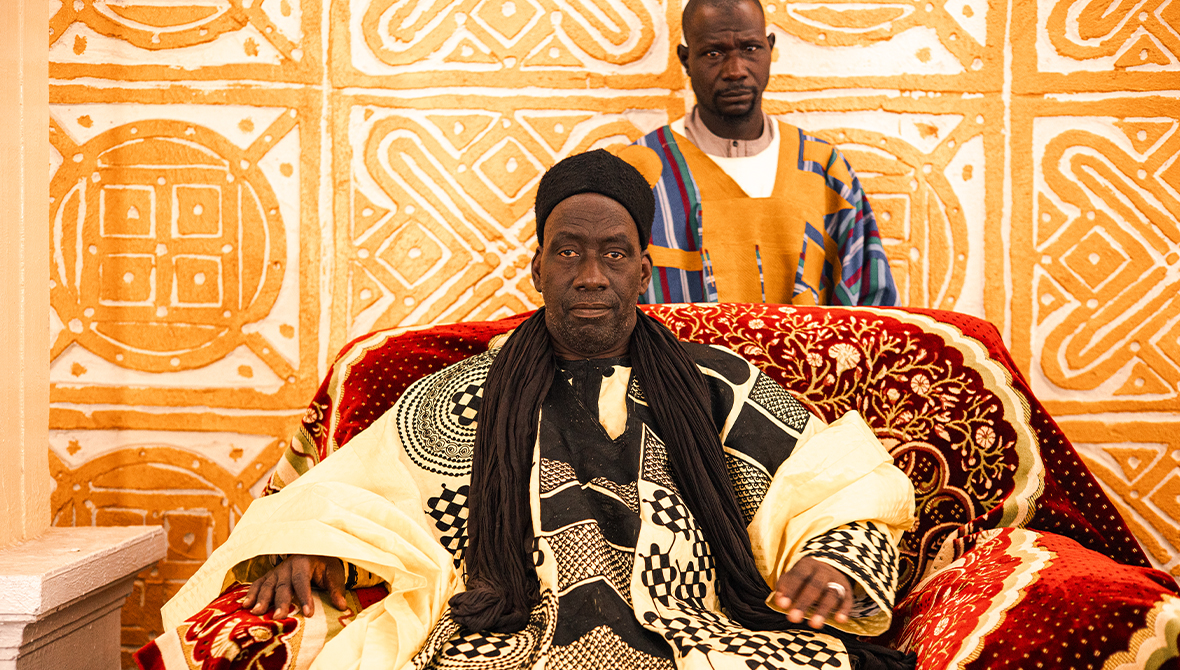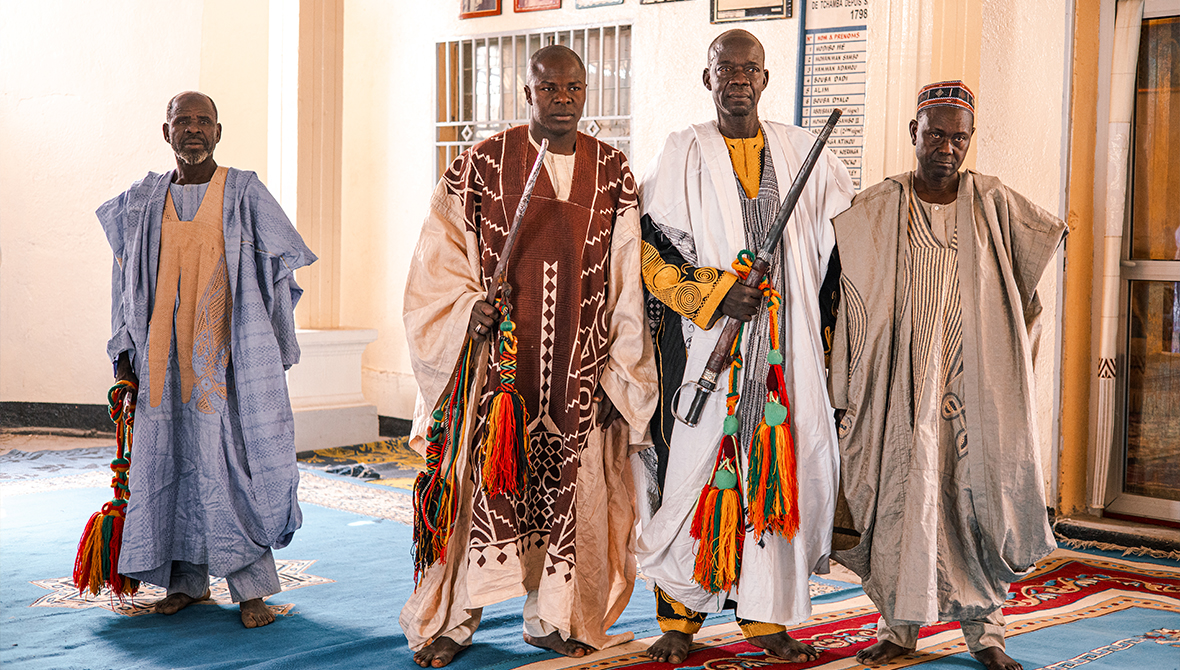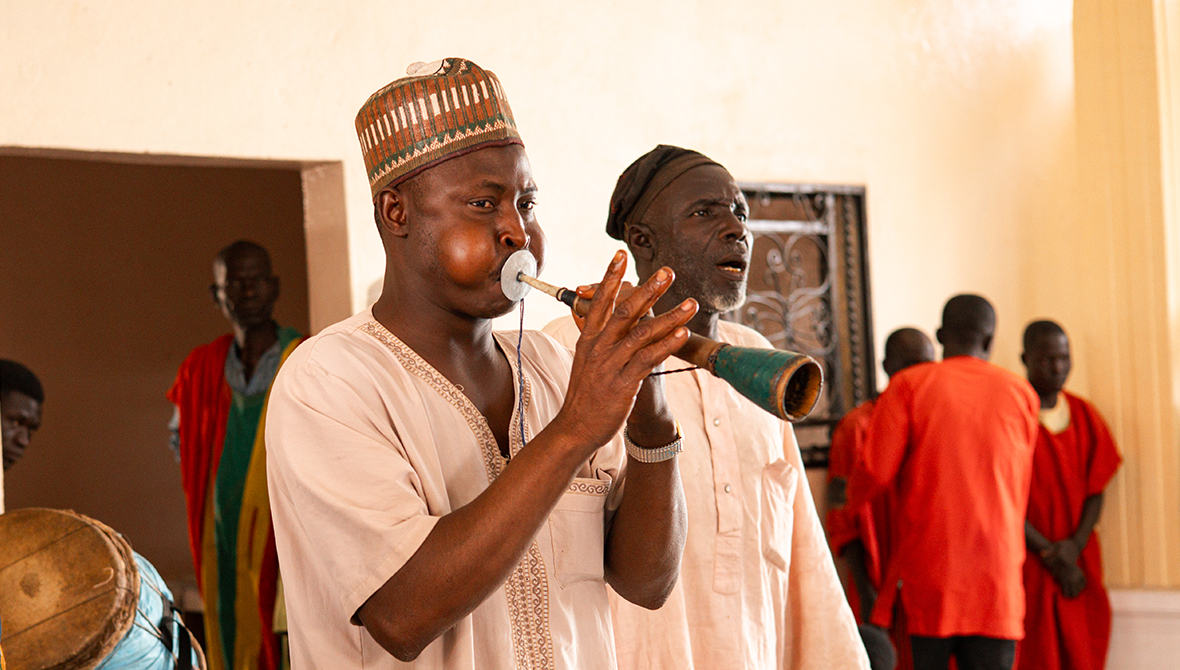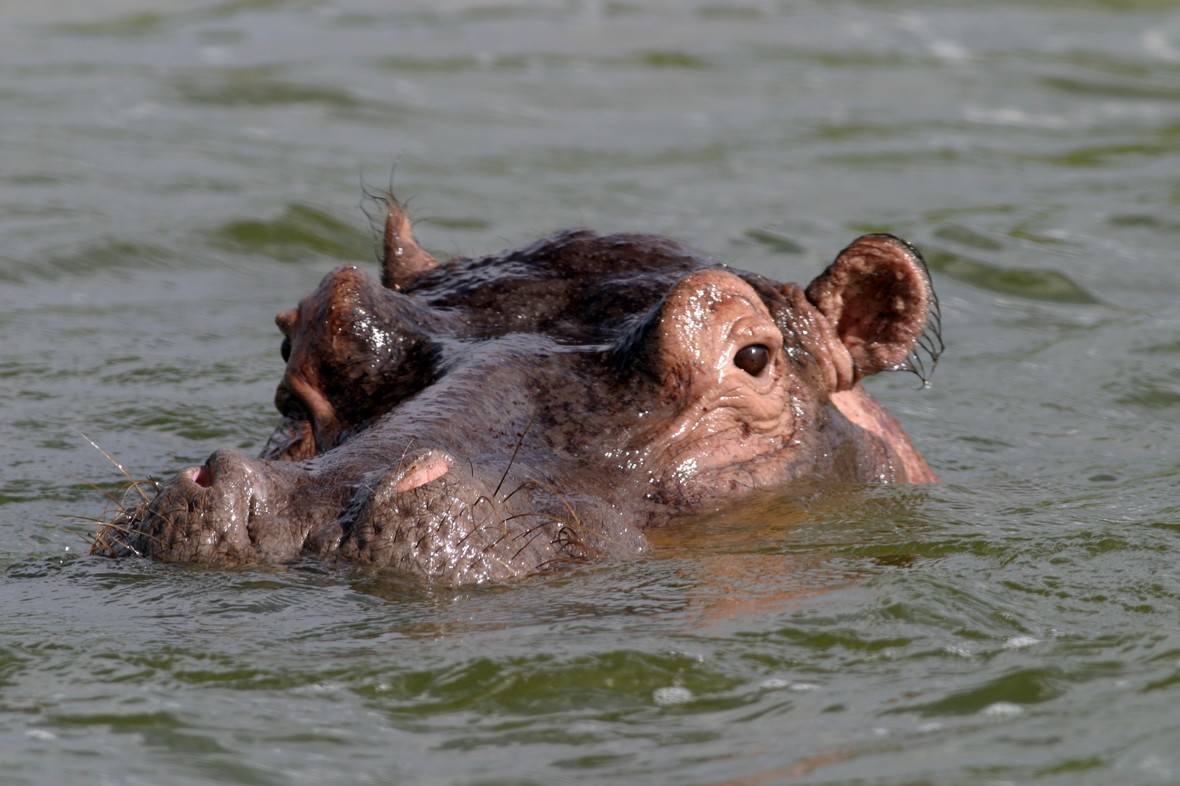Reviving Royal Traditions: This Faro Community Finds New Ways to Live with Wildlife

His Eminence Youkouda Abdoulaye Koeranga, the Lamido or hereditary king of Tchamba. ©AWF/Ariel Gakunga
As Lamido (hereditary king) of Tchamba, His Eminence Youkouda Abdoulaye Koeranga walks, talks, and sits with the confidence of a man who believes fate is on his side. For more than two centuries, his family has shouldered the responsibility of ensuring the security and prosperity of Tchamba, one of the oldest settlements in northern Cameroon.
If you want to see the Lamido, you just do not walk into his palace. There are processes to it. First, an emissary is sent to inform him of the reason for your visit. If your reasons are deemed worthy, a jester relays this to you, and an appointment is booked. You must arrive early on the said day since the Lamido has dozens of pressing things to address. Once at the palace, you must adapt to his pace. Guests sit on carpets spread around him and are expected to hang onto the words he speaks. Patience will be demanded of you.
A History of Conservation
“My people have always lived with wildlife,” he says. “My forefathers created the reserve even before we knew of the word reserve. Over the years we have had challenges to maintain the park. But today, the dream that was started all those years ago has been turned into reality by important partners (like AWF).”
Faro National Park, important for its diverse biodiversity, seems untouched and undisturbed. Yet, this National Park has historically grappled with poaching, over-transhumance (a term for seasonal livestock herding), and poor resource allocation, challenges that continue to take a toll on its wildlife.

The Lamido's guards survey the court. Tchamba is one of the oldest settlements in northern Cameroon. ©AWF/Ariel Gakunga
“It is these challenges that we are trying to address in our work,” Anthony Agbor, the African Wildlife Foundation Faro Landscape Director, says.
But for conservation to mean something to the people of Tchamba, the right steps had to be taken from the very beginning.
“We had to involve the local communities and find out what their most pressing needs were,” Adamou Aboubakar, AWF’s Community Liaison Officer, says. “Without the community’s partnership, nothing would have been achieved.”
Partnerships as a Key to Protection
As you wait to see Lamido Youkuda, as you wait for his jesters to tell you he is ready for you, you will be moved from the entrance of the palace to a separate holding room for a meal. A meal that you will be expected to finish—and if for any reason you are unable to consume the food laid out, you will be besought to carry the remainder with you.
Then, the piercing sound of an algaita—a wind instrument made from reeds that makes the player’s cheeks swell—is followed by the thumping of drums and a mélange of musical sounds that crescendo with the entrance of the Lamido.
“Although we have always been involved in Faro, we have not worked alone. AWF has and continues to play a critical role,” Lamido Youkuda says. “The biggest success we have had is them convening the different people in conservation here. Not just the different communities but other important stakeholders as well.”

A palace usher announces the entry and departure of the Lamido. ©AWF/Ariel Gakunga
Through training, workshops, and community engagement projects, His Eminence says that neighboring communities can now sit down together and have meaningful conversations about the park.
“Before this convening, everyone was doing their own thing without thinking about the consequences,” he says.
This change, he says, was possible because of a critical ingredient.
“AWF understood and accepted that we had our own relationship with the forest. They treated the community as equals and let us participate in decision-making.”
New Skills, New Livelihoods
Years later, the relationship between AWF and the communities around Faro National Park transcends conservation.
“We have new skills. Our people who have traditionally been cattle keepers are now keeping bees as well,” Lamido says. “This puts something in their pockets and provides an alternative to invading the park.”
Now, the 8,000 residents of Tchamba see value in conservation.

Faro National Park is home to the largest hippopotamus population in West and Central Africa. ©Craig R. Sholley
“It is not just about the animals or the trees,” the Lamido says. In other words, it is about creating economic opportunities tied to nature.
As he stands up to leave, his knights stand up, too. Swords in hand, they form a human shield, which he uses to exit his receiving room and return to a private backroom.
This time, there is no fanfare. His exit is the complete opposite of his entrance. Just as he disappears, he adds a final thought.
“There is much more to do,” he says. “Current efforts only cover part of the park. Can we work together to cover the entire park and neighbouring landscapes?”
In a few minutes, the palace is empty. Portraits from Lamidos past peer down at the carpeted, now empty space, which moments ago was filled with the counsel of their descendant.